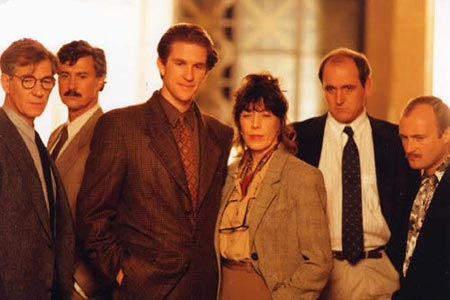Manuel is working his way through all the LGBT-themed HBO productions...
Last week we looked at a biopic of one of the most reviled political figures in twentieth century American history in Citizen Cohn. This week we continue our collection of HBO AIDS films (notice that every single film we’ve discussed so far has been centered on the epidemic: from the Harvey Fierstein chamber piece, Tidy Endings, to Epstein & Friedman’s Oscar winning doc, Common Threads and even that James Woods’-led biopic which structured itself around Cohn’s own battle with the disease) by looking at And the Band Played On, a film you should all watch if for no other reason than to see the eclectic cast Aaron Spelling (yes, he produced it!) assembled.
Lily, Sir Ian, and a troubled production history after the jump...
And the Band Played On (1993)
[Watch on Amazon Prime, HBO Go, Vimeo & YouTube]
Directed by: Roger Spottiswoode
Written by: Arnold Schulman (based on the book by Randy Shilts)
Starring: Matthew Modine, Alan Alda, Phil Collins, Lily Tomlin, Richard Gere, Ian McKellen, Richard Jenkins, Swoosie Kurtz, Steve Martin, Glenne Headly, BD Wong, Anjelica Huston. (Seriously guys, this cast!)
I read Randy Shilts’ 1987 book And the Band Played On: Politics, People, and the AIDS Epidemic just this past Spring and found it fascinating. It’s an in-depth look at the early years of the AIDS epidemic. It’s almost painfully slow and detailed, but the level of anecdotal and bureaucratic information Shilts packs in his conversational prose requires such glacial pace. It’s not a perfect book (its “patient-zero” shaming feels at odds with the book’s overall progressive agenda) but it was instrumental in unearthing the inadequate response to the epidemic from pretty much every group imaginable. The film, which condenses Shilts’ mammoth of a book into 141 minutes, is brave and, as the New York Times put it in its original review:
...tough and uncommonly courageous television.”
Sadly, it’s barely anything more.
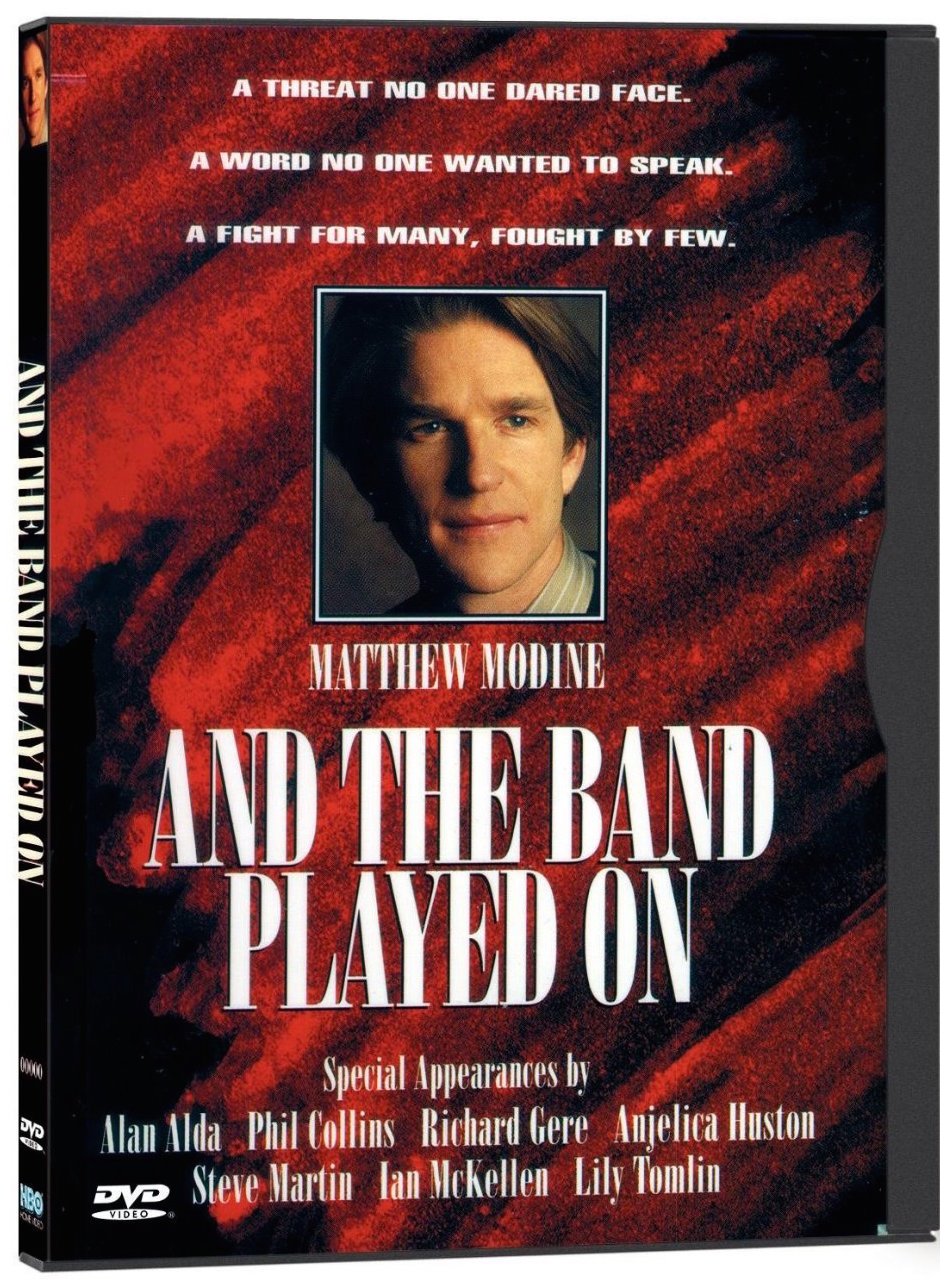 That's not to say it’s not electric at times. In small but crucial scenes, Swoosie Kurtz and Steve Martin manage to humanize the various statistics and medical breakthroughs and political hand-wringing that make up much of the film (no wonder Joel Schumacher, once interested in directing the adaptation, wanted to make Band into a documentary). When Spottiswoode and his sprawling cast slow down and focus on these types of stories (a woman learning a blood transfusion has resulted in an AIDS diagnosis, a brother unable to answer questions about his deceased sibling), you can feel the cold rage that characterizes Shilts’ book. But the film’s insistence on being exhaustive, trying to tell the story of government inaction, of petty medical rivalries, and (only incidentally) the splintering of a seemingly once-unified LGBT community, ultimately hobbles the momentum these small bursts of melancholy brilliance accrue.
That's not to say it’s not electric at times. In small but crucial scenes, Swoosie Kurtz and Steve Martin manage to humanize the various statistics and medical breakthroughs and political hand-wringing that make up much of the film (no wonder Joel Schumacher, once interested in directing the adaptation, wanted to make Band into a documentary). When Spottiswoode and his sprawling cast slow down and focus on these types of stories (a woman learning a blood transfusion has resulted in an AIDS diagnosis, a brother unable to answer questions about his deceased sibling), you can feel the cold rage that characterizes Shilts’ book. But the film’s insistence on being exhaustive, trying to tell the story of government inaction, of petty medical rivalries, and (only incidentally) the splintering of a seemingly once-unified LGBT community, ultimately hobbles the momentum these small bursts of melancholy brilliance accrue.
Unsurprisingly, gay icons Lily Tomlin and Sir Ian McKellen are the MVPs of the film. They each bring a clear sense of urgency and authenticity to their performances while others (Modine in particular) get drowned in the didactic nature of their roles. Always a master of bristling spontaneity, Tomlin’s work as public health worker Dr. Selma Dritz jolts you whenever she’s on screen, especially as she bluntly and hilariously discusses bathhouses!
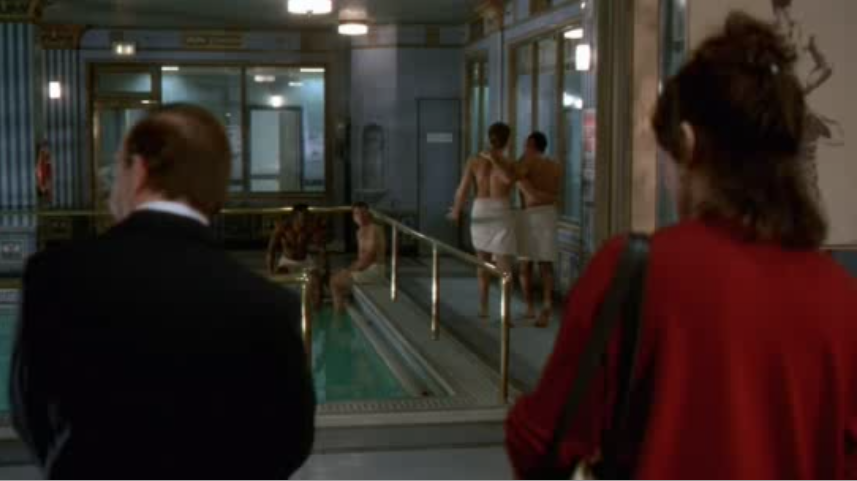
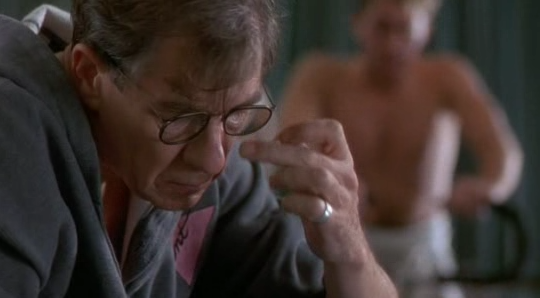
McKellen, a mere five years after publicly coming out, plays congressional aide Bill Kraus (one of the more nuanced and tragic figures in Shilts’ book) with aplomb, his ultimate diagnosis and death the most heartbreaking character arc in the film.
“How many dead hemophiliacs do you need? How many people have to die to make it cost efficient for you people to do something about it? A hundred? A thousand? Give us a number so we won't annoy you again until the amount of money you begin spending on lawsuits make it more profitable for you to save people than to kill them.”
- Don Francis (Modine)
Much as Common Threads and Tidy Endings, the value of And the Band Played On might very well lie in its mere existence. While its road to production was a thorny one (see below), that an A-List cast would sign on for a project like this signaled the subtle if increasingly palpable cultural shift regarding gay people and AIDS in general that had characterized the late 80s and early 90s. While the film’s cultural politics remain somewhat toothless. Much of the in-fighting within the LGBT community that make up the most revelatory passages in Shils’ book are lost here in an attempt, perhaps, to not meddle with the audience’s sympathy too much. Casting Modine and centering the narrative around his portrayal of Don Francis (while sidelining other key figures in Shilts’ book like Cleve Jones and Larry Kramer) tilts the frame of the story just enough away from the gay community that it ends up feeling like a conscious choice to, as Hollywood has done time and time again, make movies about gay people that aren’t really about them.
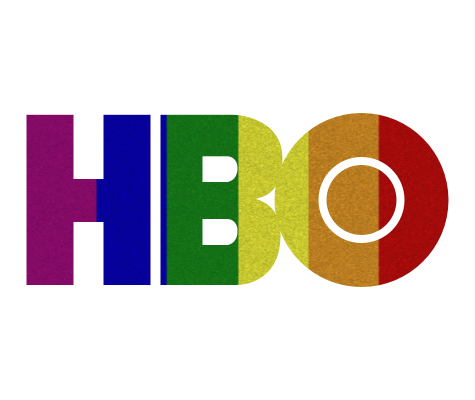
Factoid: If you want to read up on the embattled making-of drama behind this HBO production (which was originally pitched to NBC as a miniseries) and want to remember the heyday of EW, I highly recommend this 1993 feature piece on it. The most tantalizing tidbits? Roger Spottiswoode (then best known for the Mel Gibson/Robert Downey Jr. film Air America) wanted to screen a working cut of the film at Cannes only to be road-blocked by HBO who brought in Bill Couturie (a producer on Common Threads) to re-edit the film, finally producing the version that remains and which presumably is not exactly the film Spottiswoode had envisioned.
Next week: We look at another one of these hard-to-find films that HBO seems intent on burying, In the Gloaming (even the Wikipedia page has barely any info on it!), the directorial debut of Christopher “Superman” Reeve which starred Glenn Close, Robert Sean Leonard, Bridget Fonda and Whoopi Goldberg (!). And yes, it’s another AIDS story centered on an affluent white gay man but I can’t deny me some Glenn.
